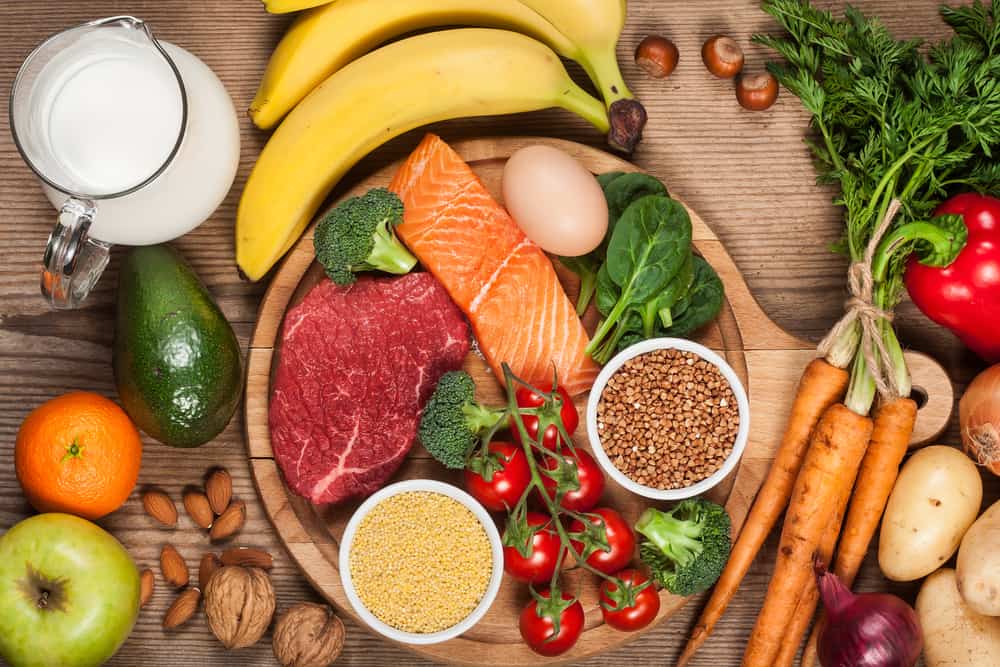Contents:
- Medical Video: How Many Calories Should A 4 Year Old Have A Day?
- List of healthy and nutritious foods needed by preschoolers
- Fruit and vegetables
- Complex carbohydrates
- Lean meat
- Milk and other dairy products
Medical Video: How Many Calories Should A 4 Year Old Have A Day?
When your child starts entering kindergarten or school, in general child food can be equated with adults. They need a regular food intake to stay active throughout the day while studying and playing. However,does not mean you can arbitrarily choose a daily food menu for preschoolers. See the following guidelines.
List of healthy and nutritious foods needed by preschoolers
Generally the daily calorie needs of preschoolers (4-6 years) range from 1,600 calories. As much as possible, serve a child's meal menu in portions that are easy to grasp or chew.
The following is a list of healthy foods that preschoolers must get every day to meet their nutritional needs.
Fruit and vegetables
Children are susceptible to constipation because their diet is full of ready-to-eat foods (imagine chicken nuggets, sausages, french fries, macaroni), sweets, biscuits, or sweet drinks. Fruits and vegetables are a group of high-fiber foods, which can facilitate bowel movements. Not only does it contain fiber, this food can also prevent heart disease, control blood sugar levels, and keep a child's weight healthy and avoid the risk of obesity.
Preschoolers aged 4-6 years need at least 2 servings of fruit and 3 servings of vegetables every day. For comparison, sor portion of fruit is one medium-sized fruit or two small sizes. For example, one large tomato or two tomatoes. Meanwhile, one serving of vegetables is the same as one medium size potato or 30 grams of spinach (one whole spinach bunch about 200 grams).
Complex carbohydrates
Preschool is a busy time for children to do physical activity and adventure to find out the world around. So do not be surprised if the child's appetite can quickly come and go to meet his energy needs throughout the day.
High-carbohydrate foods can supply energy to the body. But don't choose any carbohydrates. Simple carbohydrates found in white bread, flour, and white rice quickly increase blood sugar, which makes children lethargic.
Instead, provide foods rich in complex carbohydrates from whole grains, such as whole wheat bread, whole grain cereals, beans, and / or brown rice. Complex carbohydrates can provide a stable energy level for children to move throughout the day. The intake of carbohydrates needed by preschoolers is usually 300 grams per day.
Lean meat
A number of international studies have shown that children who are given high-protein foods, especially animal protein, have a higher body than their age children who do not get enough protein intake.Daily protein needs of children aged 4-6 years are 35 grams per day.
In addition, non-fatty animal meat such as fish, chicken, and poultry can meet the needs of iron, zinc, vitamin B12, omega-3, fatty acids and proteins for growth and development of the child's muscles. Kthe mainstay of iron and omega-3 fatty acids also plays an important role in maintaining cognitive functions of the child's brain to learn.
Milk and other dairy products
Calcium is very necessary for the formation of bones and teeth of children. Not only needed by bones, calcium is also needed for heart function, blood clotting, and muscle function. The main source of calcium is all milk and milk products, such as cheese and yogurt.The recommended milk consumption for preschoolers is 200 ml every day.
In order for calcium to be absorbed properly in the body, match the child's calcium source with foods high in vitamin D. Aside from food, vitamin D is often found in sun exposure.












